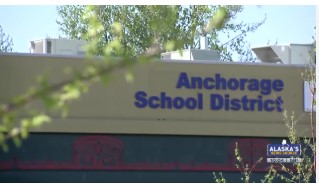In a bold move reflecting growing dissatisfaction with federal education policy, several school districts across Alaska have joined a multi-state lawsuit against the U.S. Department of Education. The legal action challenges what the districts call “overreaching and harmful” federal mandates that they argue threaten local control, compromise culturally responsive teaching, and divert much-needed resources from underserved communities.
The lawsuit, initially filed by a coalition of states and educational organizations, has gained momentum in recent months as more school districts across the country raise concerns about federal rules surrounding funding, testing, and curriculum standards. The addition of Alaska’s districts marks a significant development in the case, bringing attention to the unique challenges faced by remote and Indigenous-serving schools.
The Core of the Legal Dispute
At the heart of the lawsuit is a dispute over changes to Title I funding regulations introduced by the U.S. Department of Education. Title I, a federal program established under the Elementary and Secondary Education Act (ESEA), provides financial assistance to schools with high percentages of children from low-income families. It is designed to ensure that all students, regardless of socioeconomic background, have access to a high-quality education.
The lawsuit alleges that recent rule changes improperly tie the receipt of Title I funds to rigid academic accountability measures, including standardized test performance and strict curriculum guidelines that may not align with local needs or values. The plaintiffs argue that these requirements place a disproportionate burden on rural and Indigenous communities, especially those in Alaska, where schools face unique logistical, cultural, and economic obstacles.
Alaska’s Motivation to Join the Lawsuit
Alaska’s public education system is distinct in many ways. With more than 50 school districts spread across a vast and often remote geography, many schools serve small populations, operate in harsh weather conditions, and provide instruction tailored to Native Alaskan traditions and languages. These districts contend that federal policies fail to account for their circumstances and impose a one-size-fits-all model that undermines local autonomy.
Dr. Karen Gaborik, superintendent of the Fairbanks North Star Borough School District, explained the decision to join the lawsuit: “We believe in accountability and equity, but it must be done in a way that respects our communities. The federal regulations threaten our ability to make decisions that reflect the realities and strengths of Alaskan education.”
School leaders point to difficulties in meeting standardized testing requirements, recruiting qualified teachers, and implementing prescribed curricula when many students speak English as a second language or rely on culturally specific instruction methods. They argue that these regulations not only reduce flexibility but also erode trust between communities and schools.
The Role of Indigenous Education
Another key reason for Alaska’s participation in the lawsuit is its strong commitment to Indigenous education. Many Alaskan districts serve predominantly Native populations, and school programs are deeply tied to cultural preservation, language revitalization, and community-based learning models.
Federal mandates that prioritize mainstream, English-only curricula and standardized assessment tools often clash with these efforts. Districts argue that this not only creates compliance challenges but also contributes to the marginalization of Native voices in education.
Betty Huntington, an education advocate from the Alaska Native Education Council, noted, “For decades, our communities have fought for the right to educate our children in ways that honor our languages, histories, and ways of life. These federal rules threaten to undo that progress.”
Broader Implications for Federal-State Relations
The lawsuit is part of a larger debate over the balance of power between state and federal governments in public education. While the federal government provides funding and sets general guidelines, education is largely considered a state and local responsibility under the U.S. Constitution.
Opponents of the Department of Education’s regulations argue that the new rules violate this principle by imposing unfunded mandates and undermining local decision-making. Several states—including Texas, Florida, and now Alaska—have argued that the regulations are not only burdensome but also illegal, exceeding the authority granted to the Department under federal law.
Legal experts believe the case could set a significant precedent. “If the courts side with the plaintiffs, it may force the Department of Education to revisit and revise how it administers Title I funds,” said constitutional scholar Dr. Leonard Bryant. “It would reaffirm the role of local districts in tailoring education to their communities’ needs.”
The Federal Government’s Response
The U.S. Department of Education has defended its rules, stating that the regulations are aimed at promoting accountability, improving student outcomes, and ensuring that federal funds are used effectively. In a public statement, the Department emphasized its commitment to equity and argued that strong oversight is necessary to close achievement gaps and raise standards across all schools.
“The intention is not to punish districts but to ensure that every child—regardless of zip code—has access to quality education,” the statement read. “We welcome feedback and are committed to working with states to improve implementation.”
However, critics say the Department has been unresponsive to requests for flexibility, particularly from rural and Native-serving districts. Alaska’s educators argue that without room for adaptation, these rules effectively penalize communities that already face systemic barriers to educational success.
Looking Ahead
The case is currently being heard in federal district court, with oral arguments expected later this year. Education leaders in Alaska say they are hopeful the lawsuit will bring meaningful change and encourage the federal government to take a more collaborative and culturally aware approach to policymaking.
In the meantime, school districts are continuing to advocate for increased funding, localized control, and recognition of Indigenous education frameworks.
